Mixing engineers are the unsung heroes of music production if I’m being honest.
They’re super meticulous and detail-oriented, with an ear that’s finely tuned to every tiny nuance in a track (which is very rare).
Plus, they know how to blend, balance, and polish audio elements all day long 一 transforming raw recordings into radio-ready hits.
If you’re wondering how to become a mixing engineer, you’ve come to the right place.
Today, we’re breaking down everything you need to know about how to become a mixing engineer, including:
- Understanding the role of a mix engineers ✓
- Essential skills you’ll need to master, like adding effects ✓
- The importance of critical listening ✓
- Mastering your DAW and software ✓
- Learning key mixing techniques ✓
- Advanced mixing concepts ✓
- Audio engineering basics ✓
- How to mix music in different genres ✓
- Building and organizing your sessions ✓
- Collaborating with artists and producers ✓
- Marketing yourself as a mixing engineer ✓
- Mixing engineer vs recording engineer vs sound engineer ✓
- Breaking into the music industry as a mixing engineer ✓
- Much more about how to become a mixing engineer ✓
By the end of this article, you’ll know everything about mixing engineers.
From the skills you need to develop to the steps needed to break into the industry, and everything in between.
Plus, you’ll learn how to become a mixing engineer in today’s competitive world with expert insights, tips, tricks, and techniques along the way.
This way, you’ll be able to create professional mixes, attract clients, and build a successful career as a mixing engineer.
So, let’s dive in…
Table of Contents
What is a Mix Engineer, Exactly?
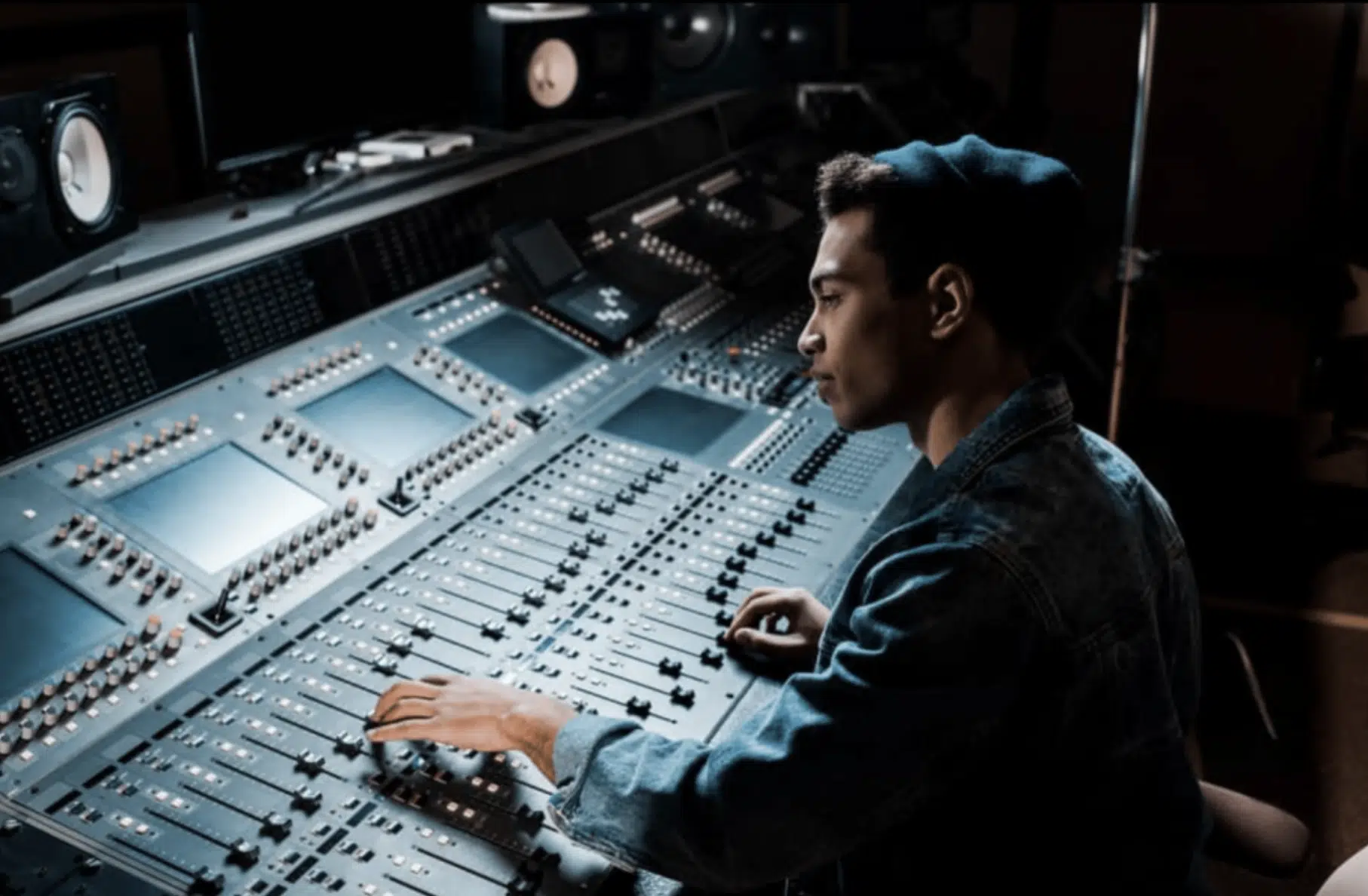
If you want to learn how to become a mixing engineer, you’ll of course have to understand what exactly mix engineers do.
Mix engineering is the art and science of balancing and blending multiple audio tracks to create a cohesive, polished final mix.
A mixing engineer takes raw recordings and shapes them into a professional, radio-ready track by:
- Adjusting levels
- Panning
- Applying equalization (EQ), compression, and other effects
- Etc.
Basically the goal is to enhance the overall sound and bring out the best elements of the music while making sure everything is clear and balanced across the stereo field.
As future mix engineers, you’ll need to have a deep understanding of both the technical aspects of sound production and the creative touches that make each song unique.
Mixing engineers work closely with artists and producers to realize their vision, sort of like a bridge between the creative and technical worlds of music production.
NOTE: The role of a mixing engineer is also key in the recording process, as it can make or break the final sound of a track.
Today, the demand for skilled mixing engineers continues to grow 一 making it an exciting and rewarding career path.
So, now that you know what exactly a mix engineer does, let’s break down how to become a mix engineer step-by-step.
Skills You’ll Need to Have As a Professional Mixing Engineer
Becoming a successful mixing engineer requires a combo of technical knowledge, practical skills, and creative intuition. So, let’s kick things off by breaking down the essential skills you’ll need to break into (and excel) in this field.
-
A Solid Understanding of the Basics of Mixing
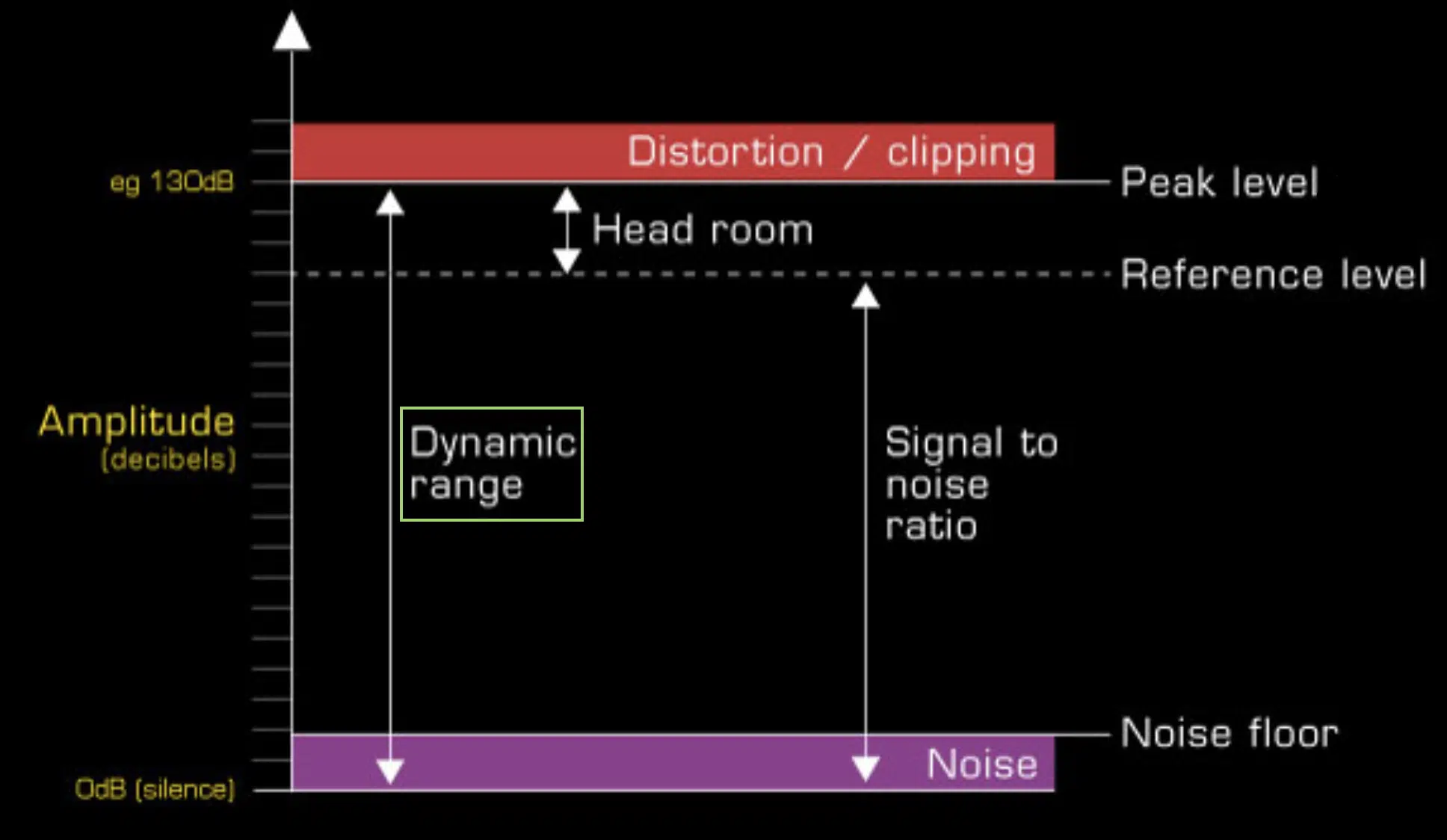
At the heart of mixing is the ability to understand and manipulate the basic elements of a track, starting with basic concepts like frequency balance.
If you’re unaware, frequency balance is simply where each instrument occupies its own space in the frequency spectrum.
For example, the bass and kick drum usually sit in the lower frequencies, while vocals and snare drums dominate the midrange, and cymbals and hi-hats fill the high-end.
Understanding how these elements interact allows you to create a more balanced mix where each instrument can be heard clearly without competing for space.
Dynamic range also plays a huge role…
A track’s dynamic range is the difference between the loudest and softest parts, and a good mix engineer knows how to use compression to control dynamics.
All without squashing the natural feel of the performance, of course.
When you’re learning how to become a mixing engineer, you’ll need to understand that mastering the basics is non-negotiable before moving on to more advanced stuff.
It sets the stage for creating professional, polished mixes that translate well across various sound systems 一 from headphones to large studio monitors.
Side note, if you want to discover the best mixing engineers in the game for some inspiration, look no further.
-
Mastery of Key Tools & Equipment
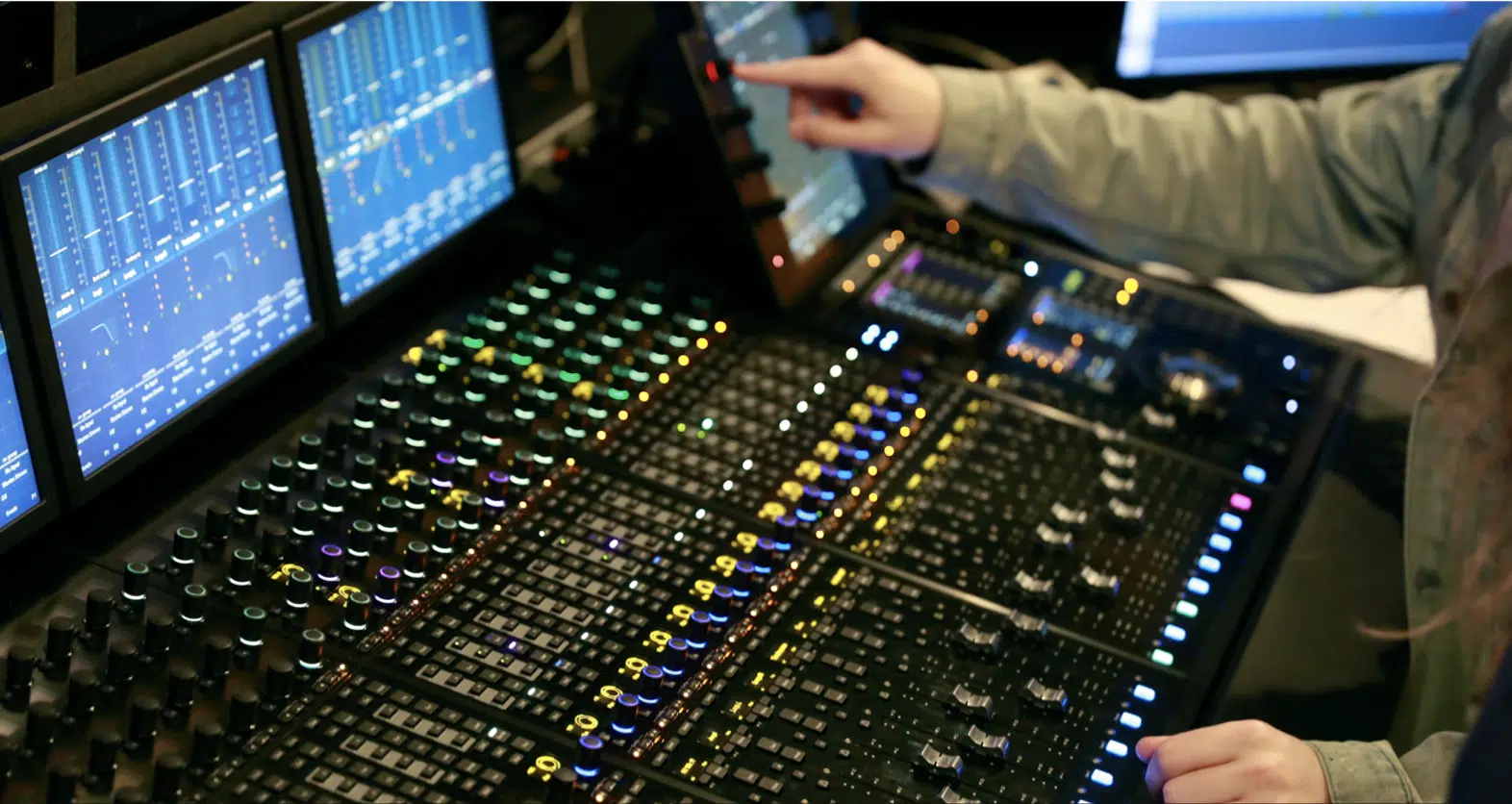
To become a superstar mixing engineer, you’ve got to know all about the tools and equipment needed to get the job done.
This includes everything from your audio interface (which converts analog signals into digital ones) to studio monitors that let you hear your mix accurately.
High-quality studio equipment, such as professional-grade headphones and microphones (like the Shure SM7B) also plays a starring role in capturing/mixing music.
For instance, an industry-standard microphone would be used for vocal recordings because they provide clarity and warmth that translates well in the mix.
Also, understanding how to use outboard gear, like compressors and equalizers, is also required most of the time.
This is because they add a unique character to your mixes that digital tools alone might not achieve (you’ll need to know how to set it up and use it effectively).
Signal flow, which refers to the path audio takes from the source (like a microphone) through your equipment (like your audio interface) to your DAW, is another big one.
Knowing how to manage signal flow ensures that you maintain sound quality throughout the recording process and into the mixing stage.
Mastering your tools and equipment as mix engineers is what allows you to bring your creative ideas to life in the mixing process, always remember that.
Plus it’ll make you seem way more professional and help you get a job much quicker.
-
DAW/Software Essentials
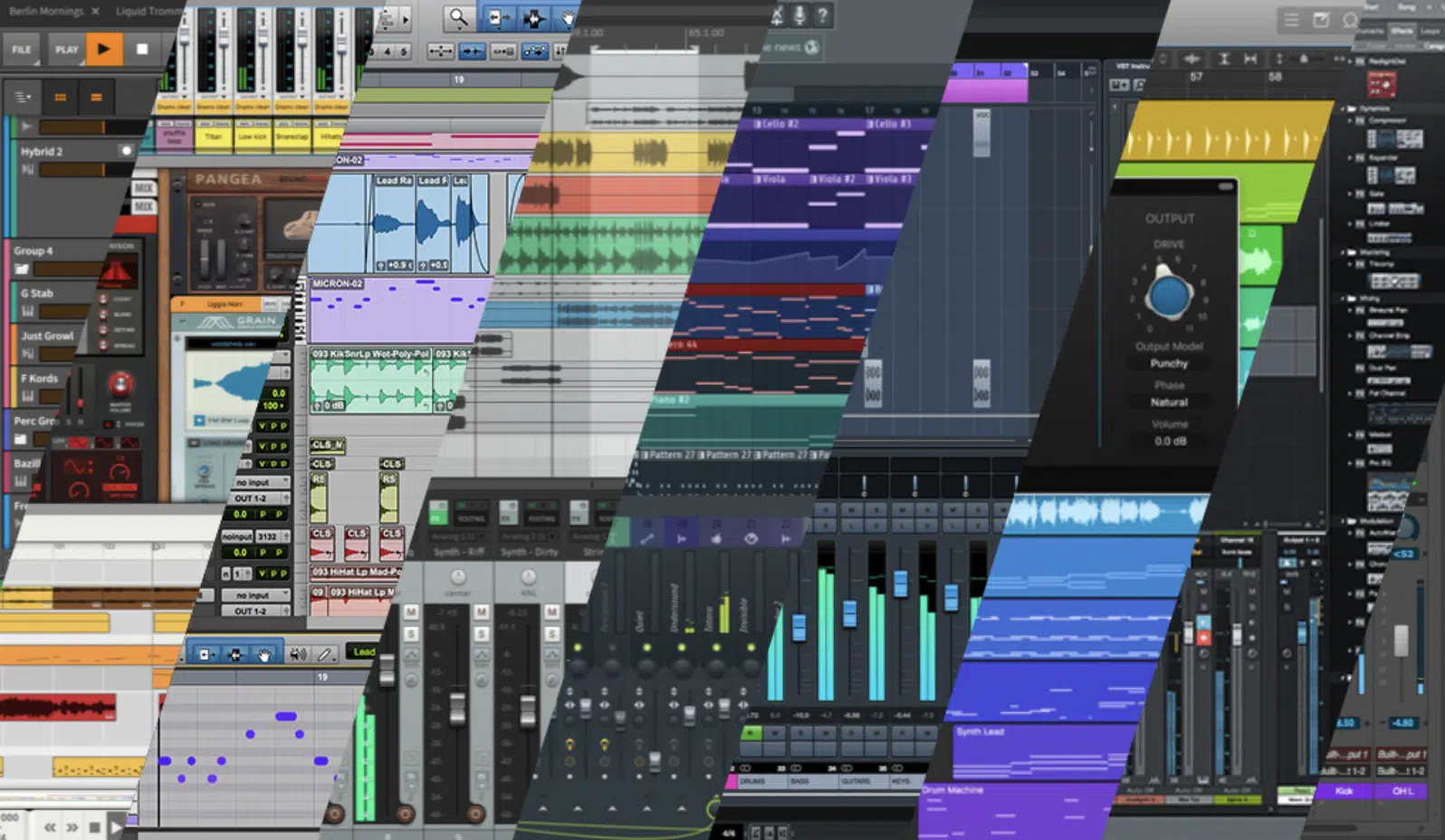
DAWs (digital audio workstations) are the heart of any mixing engineer’s, and music production workflow.
Whether you’re using Pro Tools, Logic Pro, FL Studio, Cubase, or any another popular DAW, you’ll need to master its unique features and functions.
This is because each DAW has its own strengths…
For instance, Pro Tools is known for its powerful editing capabilities 一 making it the ‘industry standard’ for mixing engineers working in high-end recording studios.
On the other hand, FL Studio (and Logic Pro) offers a more intuitive interface, which is great for those just starting out in audio production.
Regardless of your choice, you need to become an expert in the key tools your DAW offers and how to apply effects in it, such as EQ, compression, reverb, and delay.
These tools are everything when it comes to shaping the sound of your tracks during the mixing process, so don’t underestimate their importance.
Also, learning how to automate volume levels, panning, and sound effects in your DAW will help you to add even more dynamic movement and depth to your mix.
The better you know your DAW, the more efficiently you can work, period.
It allows you to focus more on the creative aspects of mixing rather than getting bogged down with technical issues (which nobody has time for).
This proficiency is a super important part of learning how to become a mixing engineer in any professional setting.
-
Critical Listening Skills
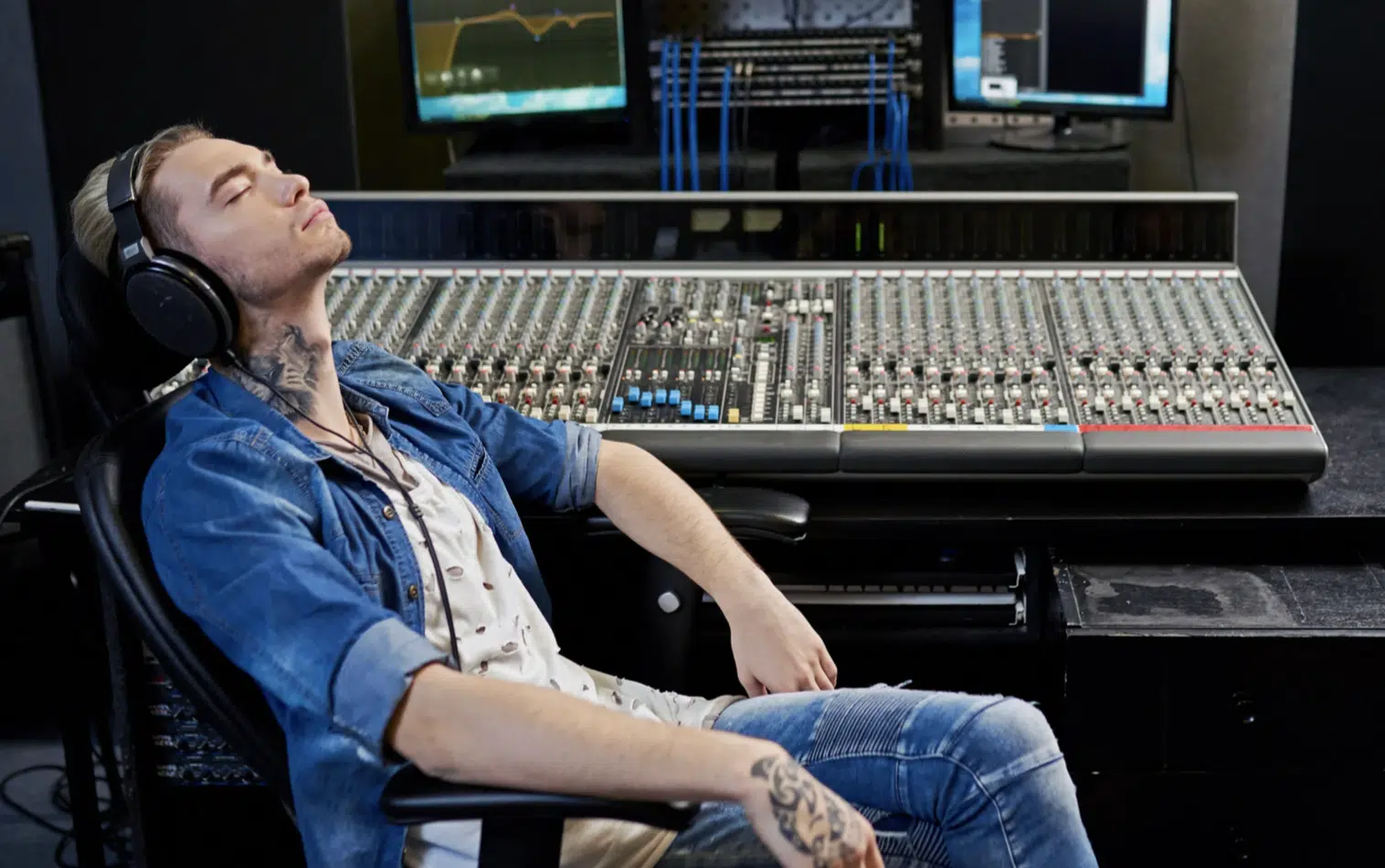
Critical listening is arguably one of the most important skills for a mixing engineer, as I’m sure you’d agree.
This skill goes beyond just being able to simply listen and hear issues…
It’s about actually understanding what you’re hearing and being able to identify even the subtlest elements in a mix.
For example, when listening to a track, a skilled mixing engineer can:
- Pinpoint specific frequency ranges that need adjustment
- Detect phase issues
- Recognize when a vocal needs slight compression to sit better in the mix
- Etc.
Developing this skill requires consistent practice and exposure to different genres of music, as each genre has its own mixing requirements.
Listening to well-mixed songs on various sound systems, from studio monitors to car speakers, will help you understand how mixes translate across different environments.
This ability to critically analyze sound is what separates a good mix engineer from a great one (make-or-break type stuff).
-
Knowledge of Key/Basic Mixing Techniques
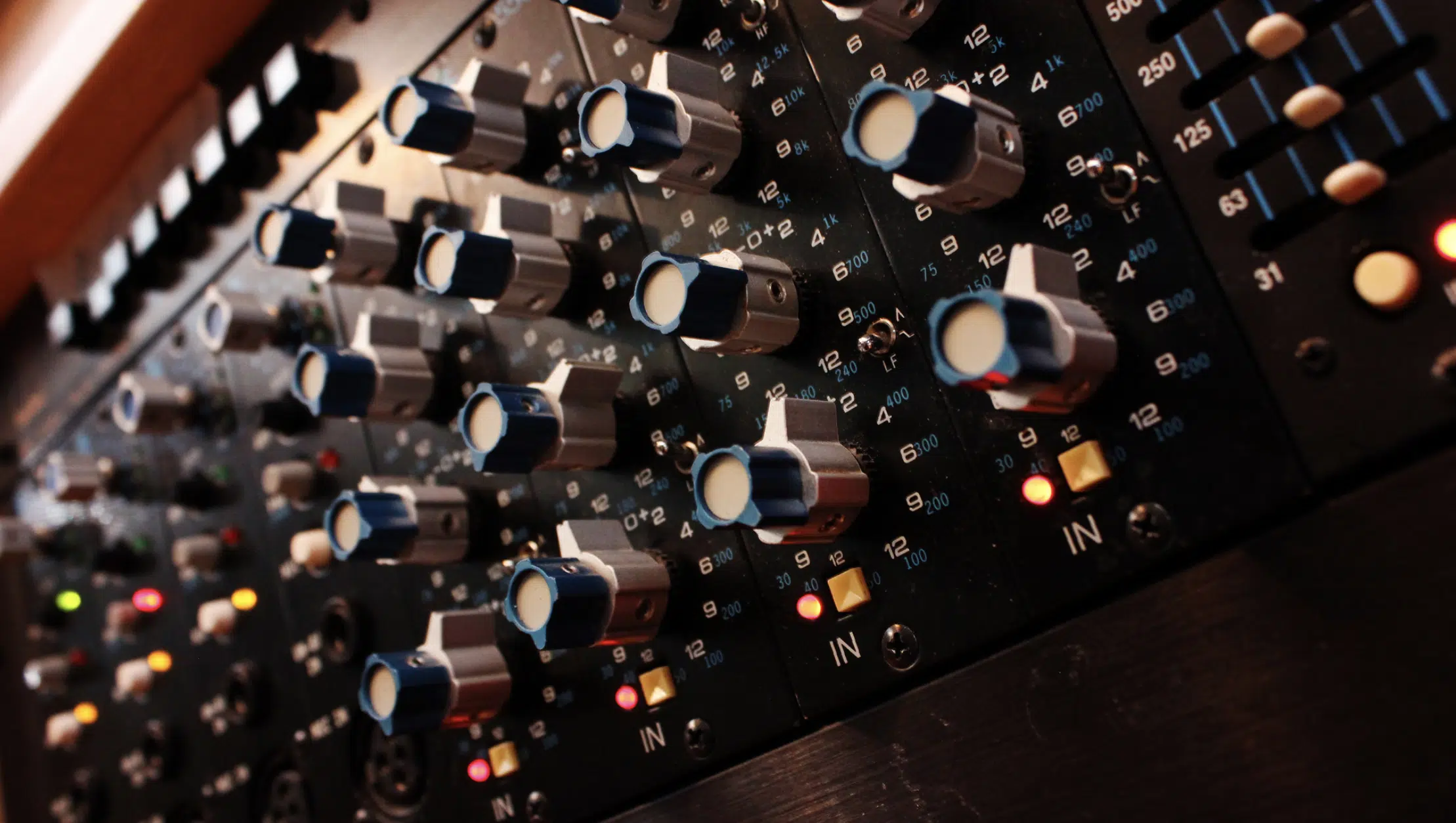
As a mixing engineer, the most important thing is that you have a solid understanding of key mixing techniques.
One of the main techniques of a mix engineer is equalization (EQ), which allows you to shape the tone of each track in a mix.
For example, you might use a high-pass filter to cut out unnecessary low frequencies from a guitar track 一 helping it sit better alongside the bass and kick drum.
Compression is another big one, used to control the dynamic range of a track.
This might involve applying subtle compression to a vocal to smooth out variations in volume so every word is clearly heard (yes, even if it’s mumble rap).
Reverb and delay are the other two main ones, as they help create a sense of space and depth in your mix, making the music feel more immersive.
NOTE: Knowing when and how to use these sound effects is key to enhancing the overall sound without overwhelming it.
Additionally, techniques like parallel compression, where you mix a heavily compressed version of a track with its uncompressed counterpart, can add punch and presence without sacrificing dynamics.
Mastering these techniques will allow you to dominate any mix with confidence, knowing that you have the skills to bring out the best in the client’s music.
-
Advanced Mixing Concepts
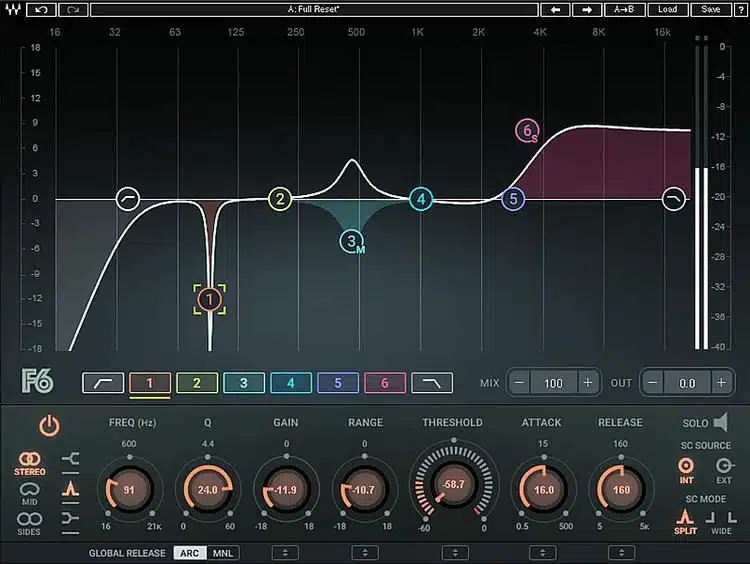
Once you’ve mastered the basics, it’s important to dive headfirst into advanced mixing concepts to refine your skills further, like sidechain compression.
This technique is used, for example, in EDM to create a pulsing effect where the bassline ducks in volume whenever the kick drum hits.
It doesn’t only add rhythmic interest but also helps prevent low-frequency clashes in the mix, which can totally ruin it.
Side note, if you want to learn how to sidechain in Ableton, we’ve got you covered.
Another advanced concept is stereo imaging, where you manipulate the stereo field to give each element in your mix its own space.
For example, you might pan background vocals slightly left and right to create a wider, more spacious feel, while keeping the lead vocal centered for clarity.
Mid/side processing is another powerful tool that allows you to separately control the middle and sides of a stereo mix.
Just keep in mind that this is particularly useful in mastering, but when you’re learning how to become a mixing engineer, it won’t hurt.
Techniques like these require not only technical knowledge but also a deep understanding of how sound interacts in a mix, which is kind of the whole point.
With these advanced concepts you can push the boundary of what’s possible in audio production and create mixes that really stand out and solidify you as a real pro.
Remember, when you’re learning how to become a mixing engineer, it’s all about pushing boundaries and enhancing your skills.
-
The Ability to Mix in Different Genres

As a mixing engineer, one of the most important skills you can develop is the ability to mix in different genres because being versatile is everything.
Each genre has its own unique sound signature and set of expectations, and knowing these differences is key to becoming a (long-term) successful mixing engineer.
For example, mixing a hip-hop track often involves emphasizing the low end 一 ensuring the kick and bass hit hard, while keeping the vocals crisp and clear.
On the flip side, a rock mix might focus on achieving a balanced blend between powerful guitars, punchy drums, and dynamic vocals.
In either genre though, you have to make sure the mix retains its raw energy.
Electronic music, on the other hand, may require precise control over synthetic elements and effects, ensuring that everything sits well together without overwhelming anybody.
Understanding these genre-specific nuances allows you to deliver mixes that not only sound great but also meet the expectations of artists/producers in those genres.
When you’re learning how to become a mixing engineer, this skill can really set you apart and gain the respect of the music industry.
Plus your future clients will know that you’re able to work on a diverse range of projects regardless of the guidelines, which is super beneficial.
-
Organizing Sessions & Building/Using Templates
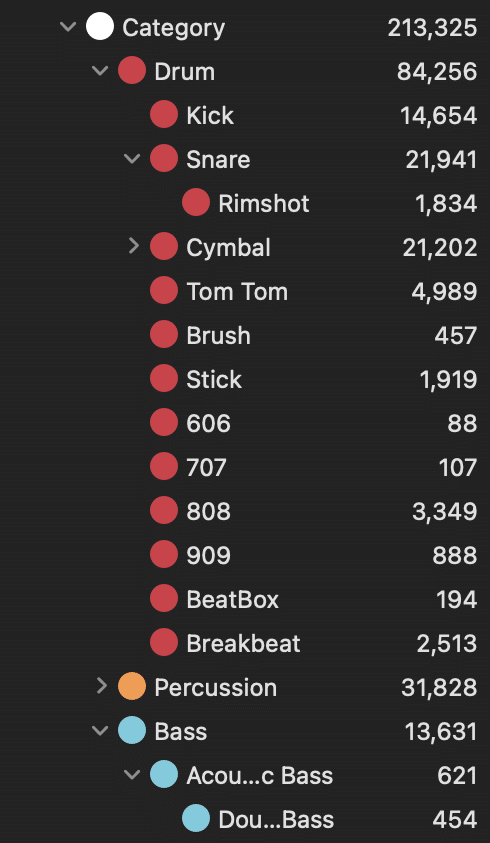
Efficiency is key when working as a mixing engineer, hand downs, and one of the best ways to streamline your workflow is by:
- Organizing your sessions effectively
- Building templates
Proper session organization starts with naming your tracks clearly and grouping them in a way that makes sense to you.
For example, placing all drum tracks in one group, all vocal tracks in another, and so on.
It’ll make it much easier to handle your session and apply global processing, such as bus compression or reverb.
Also, I say this all the time, but color-coding your tracks is a game-changer 一 helping you quickly identify different elements in your mix.
As mix engineers, understanding and using templates can save you a significant amount of time, especially when working on projects with similar setups.
For example, if you often mix pop songs, you might create a template that includes pre-routed tracks for drums, bass, guitars, vocals, and effects.
Complete with your go-to plugins already locked and loaded.
This allows you to jump straight into the creative process without getting frustrated with any technical aspects.
Bottom line, having a well-organized session and a solid set of templates not only speeds up your workflow but also ensures that you can focus more on the creative aspects of mixing music.
How to Become a Mixing Engineer: The Next Steps
Now that you know what skills you’ll need when learning how to become a mixing engineer, let’s break down the next steps. They’ll help you to actually secure a job as a mixing engineer over all the competition.
-
Building Your Portfolio
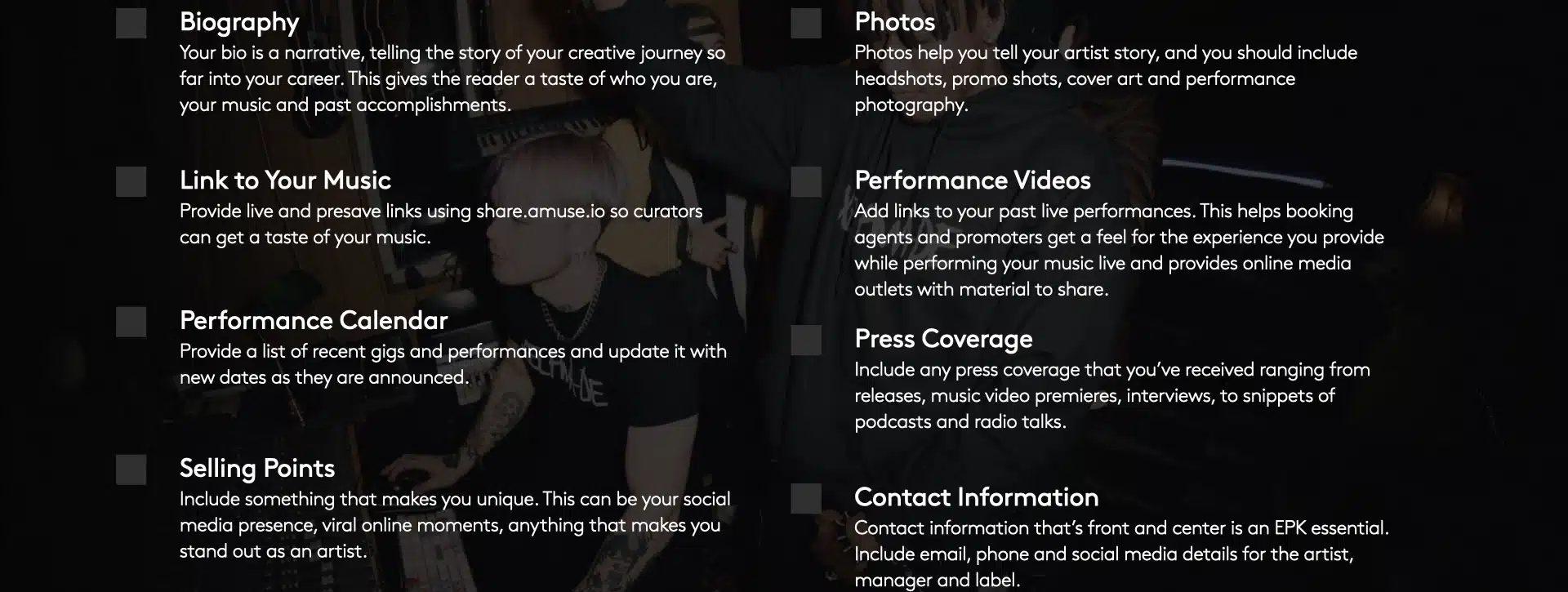
If you’re learning how to become a mixing engineer, you can’t overlook how important a good portfolio can really be.
It’s your first step to getting your name out there and having something to show professionals in the industry who are considering you as a hire.
Your portfolio should showcase your best work and demonstrate your ability to:
- Mix in different genres
- Work with various artists
- Handle complex projects
- Etc.
Start by selecting songs that highlight your skills…
Perhaps a pop track that shows off your vocal mixing skills or an electronic track that displays your expertise with sound effects and stereo imaging.
It’s important to include high-quality recordings that sound professional and polished, as this is what potential clients and employers will be looking for.
NOTE: If you’re just starting out, consider offering your services to local bands or independent artists in exchange for permission to include the mixes in your portfolio.
As you gain more experience, make sure to constantly update your portfolio with new and improved work, as it should reflect your growth and dedication.
Plus it’s a great way to attract new clients and secure mixing jobs.
-
Marketing Yourself as a Mixing Engineer
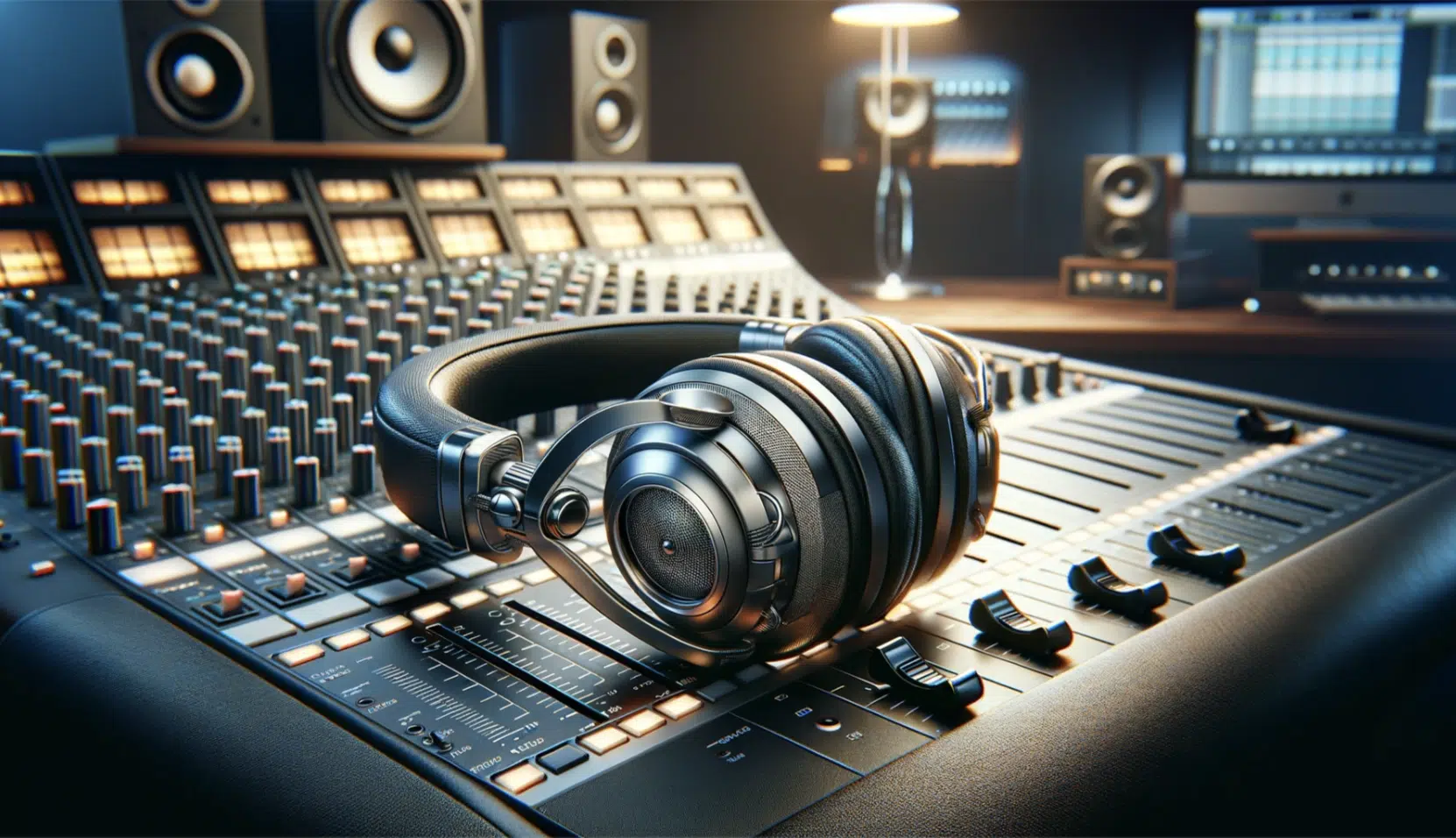
Marketing is sometimes underestimated, but believe you me it’s super important for building your brand and attracting new clients.
I mean, any successful mixing engineer has dominated the marketing game am I right?
So, you’re going to start by creating a professional online presence, including:
- A website that features your portfolio
- A bio that highlights your experience and skills as a mix engineer
- Testimonials from satisfied clients
Social media platforms like Instagram, Twitter, and LinkedIn are also super valuable tools in the sound engineering world for networking and showcasing your work.
Regularly posting content related to your mixing projects and sharing tips and insights about the mixing process is always smart.
Plus, engaging with other music industry professionals can help increase your visibility.
Also, try offering free or discounted mixing services to new clients as a way to build your client base and gain referrals, even from your home studio.
Networking is key, so attend industry events/corporate events, join online forums, and connect with other professionals in the music industry.
The more you put yourself out there, the more opportunities you’ll create to work on diverse projects, build your reputation, and grow your business as a mixing engineer.
-
Learning the Business Side of Mixing

Understanding the business side of mixing might sound a little intimidating, but it is just as important as honing your technical skills, so don’t let it overwhelm you.
As a mixing engineer, you’ll need to know how to:
- Set competitive rates
- Draw up contracts
- Manage your finances effectively
For example, when setting your rates as mix engineers, consider the complexity of the project, the client’s budget, and the industry standards.
You might charge more for a full album mix compared to a single track, or offer package deals to attract repeat business, whatever you feel is right.
Contracts are the most important things when it comes to protecting both you and your client and can take several weeks.
You’ll need to clearly outline the scope of work, payment terms, and deadlines.
It’s also important to stay on top of your finances 一 tracking your income and expenses to get that money you deserve.
Side note, yes you can always hire someone to do all this for you.
Pro Tip
Consider using accounting software to manage invoices, payments, and taxes. By mastering the business aspects of mixing, you can run your studio mixing services like a professional business. This will help you lock down a steady stream of income and ensure long-term success (and, of course, learn how to become a mixing engineer fully).
-
Continuous Learning & Education
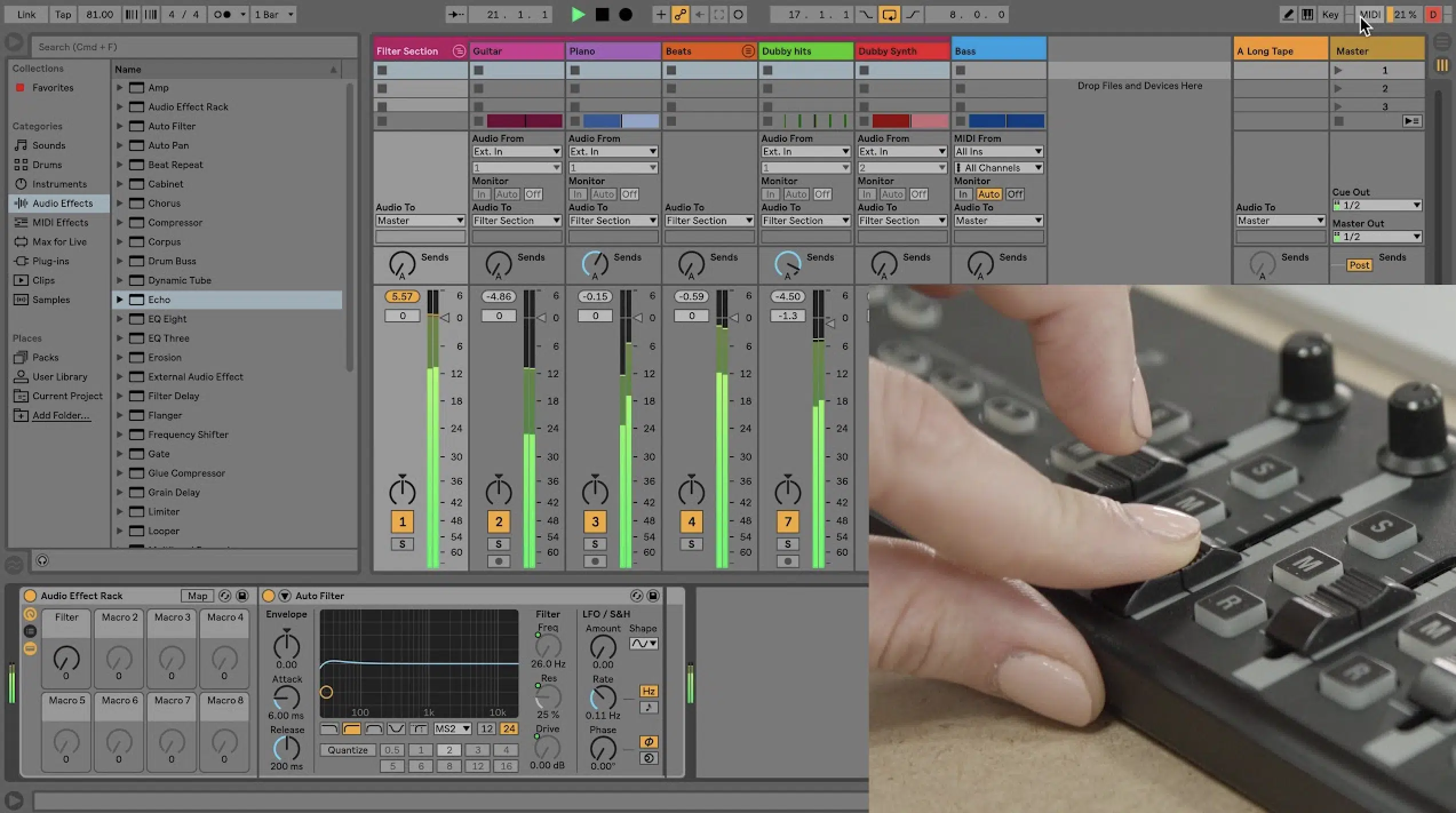
The music industry is constantly evolving (as you know), and as a mixing engineer, it’s vital to stay updated with the latest:
- Trends
- Techniques
- Technology
Continuous learning is key to remaining competitive and delivering high-quality mixes that meet modern standards, which are razor sharp.
For instance, as mixing engineers, you’ll have to know all about new plugins, software, DAWs (digital audio workstations), and even music apps that get released.
They are all unique and can enhance your audio mixing process in a major way, so it’s smart to really dabble in a little bit of everything.
Also, enrolling in online courses, attending workshops, or even participating in webinars can help you stay ahead of the curve, so don’t overlook them.
Learning from other successful mixing engineers by studying their work or attending their masterclasses can also provide valuable insights.
NOTE: Make sure to get feedback from more experienced mixing engineers to help you see areas you need to improve.
By committing to lifelong learning, you’ll refine your skills all day to make sure that your mixes are always of the highest sound quality.
And side note, you don’t need a formal education as long as you constantly (and I emphasize this word) learn and grow.
-
Breaking into The Music Industry & Locking Down a Mixing Job
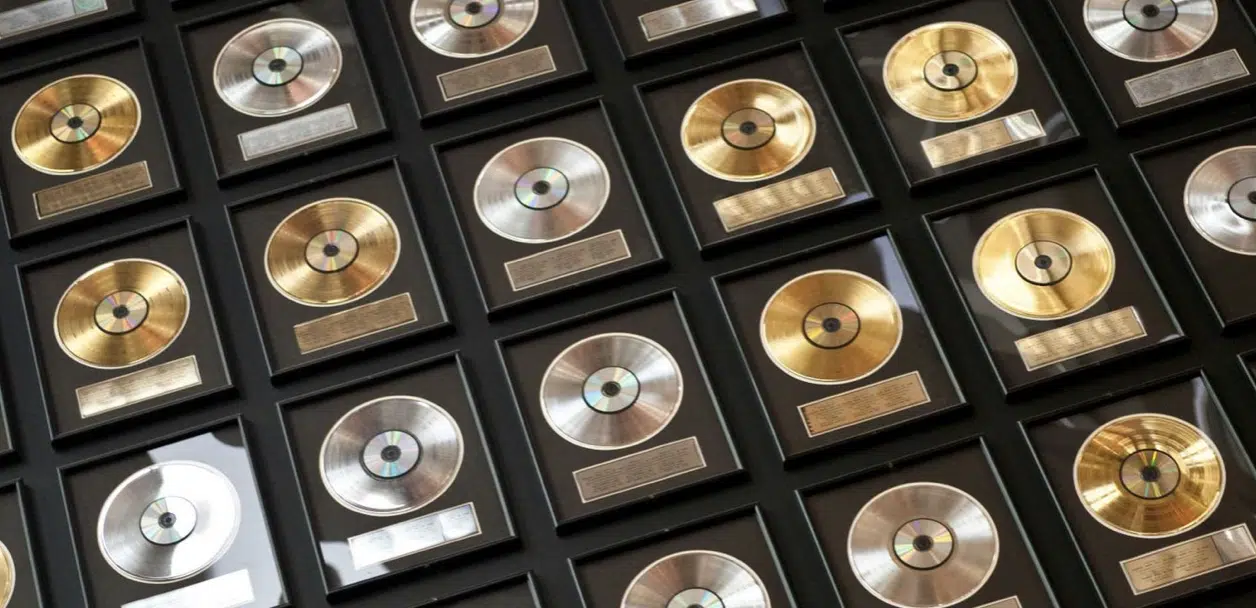
Breaking into the music industry as a mixing engineer requires persistence/hustle, networking, mad skills, and a strategic approach.
One of the best ways to start your mix engineer career is by securing an assistant engineer position at a recording studio, believe it or not.
This way, you can learn from seasoned audio engineering professionals and gain hands-on experience.
As an assistant engineer, you’ll likely start by performing tasks like setting up sessions, managing equipment, and making coffee.
But, these roles provide invaluable exposure to the recording process and allow you to observe how experienced mixing engineers work.
Building relationships with the artists and producers you work with can lead to opportunities to take on mixing projects of your own, from your own studio or with a major label.
NOTE: Speaking of labels, if you’re looking to start your own record label, there are a few very important things you should know.
Freelancing is also a solid option, especially if you have a strong portfolio and good networking skills.
Freelance platforms, music production forums, and social media can help you connect with potential clients.
As you gain more experience and build a reputation, you’ll get opportunities to work with larger clients or even secure a permanent position at a major recording studio.
Just remember, dedication are key 一 the more you immerse yourself in the industry, the closer you’ll get to landing your dream job as a mixing engineer.
Bonus: Mixing vs. Mastering
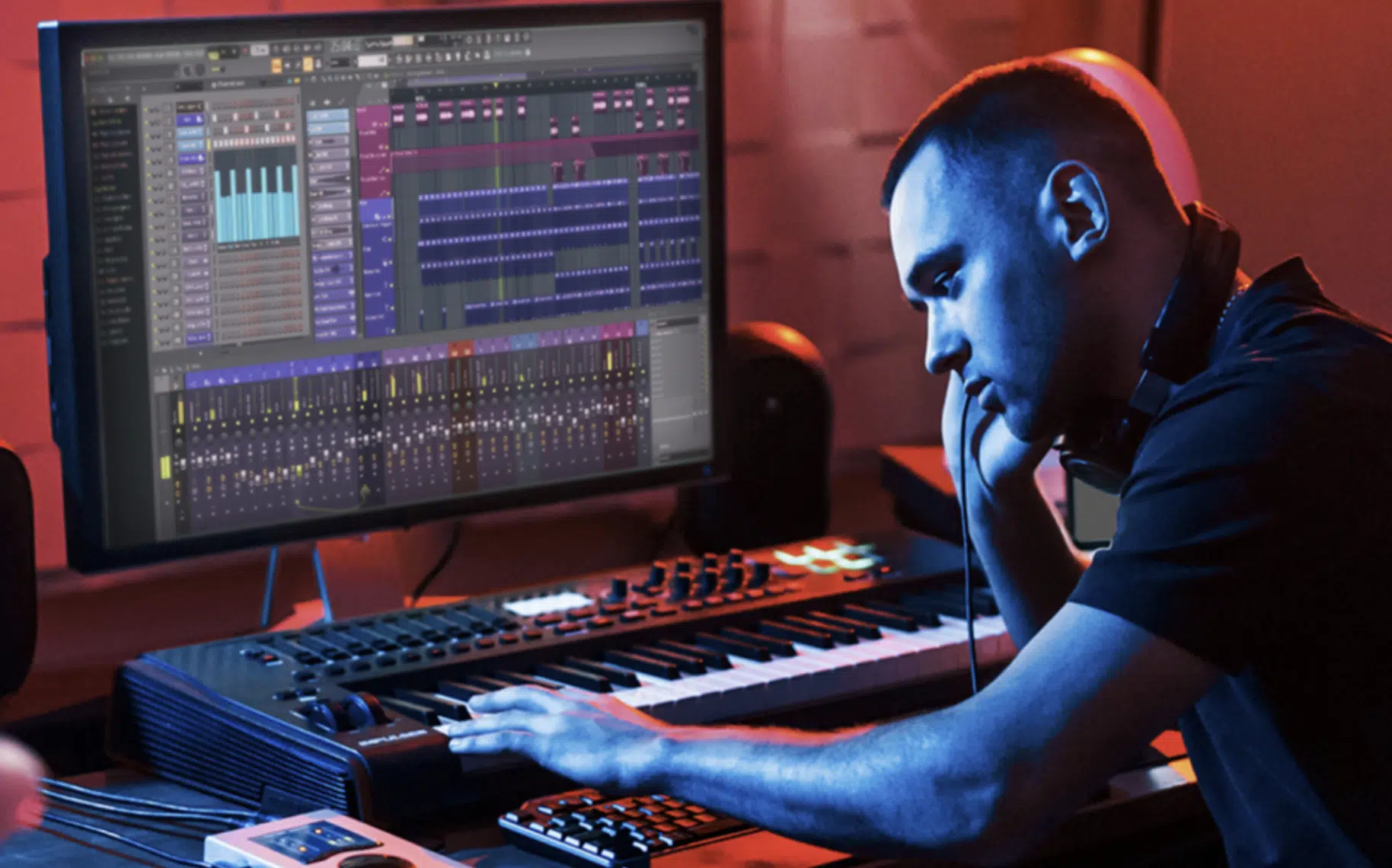
When you’re learning how to become a mixing engineer as opposed to a mastering engineer (which we’ll break down in another article), you’ve got to know the key differences.
Mixing and mastering are two unique stages in the audio production process, each with its own set of goals and techniques.
- Mixing 一 Involves balancing and blending individual tracks to create a cohesive final mix.
- Mastering 一 Is the final step in preparing a song for distribution.
A mastering engineer takes the mixed track and applies subtle adjustments to ensure it sounds good across all playback systems, from high-end sound systems to earbuds.
This process often involves applying equalization, compression, and limiting, but with a focus on the overall sound rather than individual elements.
For example, a mastering engineer might add a slight boost in the high frequencies to add clarity or apply a gentle compressor to glue the mix together.
All without altering the dynamics too much, of course.
Mastering also involves setting the final volume levels for distribution.
This is where you ensure that the track meets industry loudness standards without introducing distortion or losing dynamic range.
The mastering process is key because it ensures that the track will sound consistent across different platforms, whether it’s streaming on Spotify or on the radio.
NOTE: While some mixing engineers also offer mastering services, the skills required for mastering are specialized, and many choose to focus on one discipline.
Understanding the difference between mixing and mastering helps you appreciate the unique challenges of each stage.
This way, you can deliver a final product that meets professional standards.
Just remember, mixing brings out the creative elements of a song, and mastering ensures that the final mix translates well in the real world.
Both steps are vital in the overall sound production process, but they are very, very different; don’t make the mistake of clumping them into one.
How to Become a Mixing Engineer: Final Thoughts
When you’re learning how to become a mixing engineer, it involves a LOT of dedication, practice, and attention to detail.
Plus, being able to work with various artists, manage complex sessions, and understand the intricacies of sound is also key.
If you’re going to really become a successful mixing engineer, then this guide is definitely your golden ticket.
With it, you can gain the knowledge you need and make the right steps to get you that much closer to achieving your goals, however big they may be.
As a special bonus, make sure to check out the Free Project Files, which include 3 professional project files that are all mixed to absolute perfection.
These files break down, in detail, all of the key mixing tasks, like EQing, compression, reverb, and sidechain compression.
Plus, they were all created by top producers and sound designers, so they will really help you up your game quicker.
With it, you can see exactly how to structure your mix and apply professional techniques to your projects, which is, needless to say, invaluable.
Remember, every mix you work on is a step closer to mastering your craft, so stay persistent, keep learning, and you’ll see your hard work pay off, I promise you that.
Until next time…







Leave a Reply
You must belogged in to post a comment.